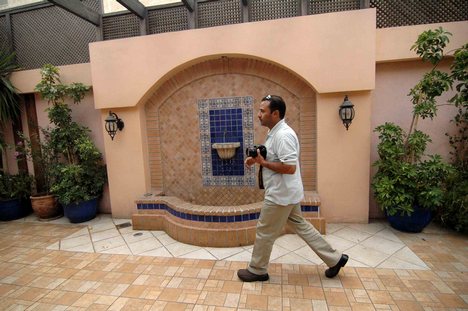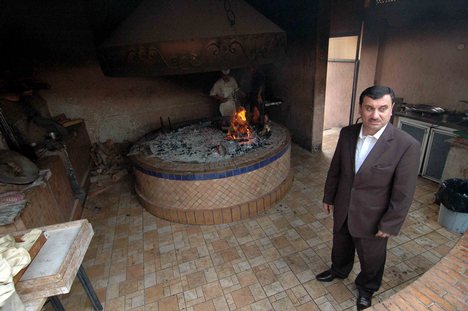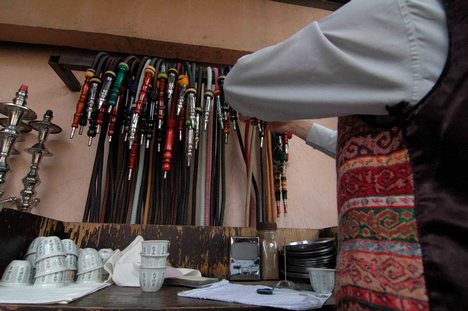
- Order:
- Duration: 2:25
- Published: 12 Nov 2006
- Uploaded: 23 May 2011
- Author: marthamenezes







 color.jpg)





 2 cropped.jpg)
 1.jpg)





.jpg)
























![Jesca Hoop - Big Fish [Official Music Video] Jesca Hoop - Big Fish [Official Music Video]](http://web.archive.org./web/20110527170050im_/http://i.ytimg.com/vi/aIuTu7i_KW0/0.jpg)















































| Name | Big Fish |
|---|---|
| Caption | Theatrical release poster |
| Director | Tim Burton |
| Producer | Dan JinksBruce CohenRichard D. Zanuck |
| Screenplay | John August |
| Novel | Daniel Wallace |
| Starring | Ewan McGregorAlbert FinneyBilly CrudupJessica LangeAlison LohmanSteve BuscemiDanny DeVitoHelena Bonham CarterHailey Anne Nelson |
| Music | Danny Elfman |
| Cinematography | Philippe Rousselot |
| Editing | Chris Lebenzon |
| Studio | Jinks/Cohen CompanyThe Zanuck CompanyTim Burton Productions |
| Distributor | Columbia Pictures |
| Released | |
| Runtime | 125 minutes |
| Country | |
| Language | English |
| Budget | $70 million |
| Gross | $122,919,055 |
Screenwriter John August read a manuscript of the novel six months before it was published and convinced Columbia Pictures to acquire the rights. August began adapting the novel while producers negotiated with Steven Spielberg who planned to direct after finishing Minority Report (2002). Spielberg considered Jack Nicholson for the role of Edward Bloom, but eventually dropped the project to focus on Catch Me If You Can (2002). Tim Burton and Richard D. Zanuck took over after completing Planet of the Apes (2001) and brought Albert Finney and Ewan McGregor on board.
The film's theme of reconciliation between a dying father and his son had special significance for Burton, as his father had died in 2000 and his mother in 2002, a month before he signed on to direct. Big Fish was shot on location in Alabama in a series of fairy tale vignettes evoking the tone of a Southern Gothic fantasy. The film received award nominations in multiple film categories, including four Golden Globe nominations, seven nominations from the British Academy of Film and Television Arts, two Saturn Award nominations, and an Oscar and a Grammy Award nomination for Danny Elfman's original score.
Edward continues telling tall tales, claiming he spent three years confined to a bed as a child because his body was growing too fast. He became a successful sports player, but found the town of Ashton too small for his ambition, and set off with the misunderstood giant Karl (Matthew McGrory). Edward discovers the hidden town of Spectre, where everyone is friendly to the point of comfortably walking around barefoot. Edward leaves because he does not want to settle anywhere yet, but promises to a young girl named Jenny (Hailey Anne Nelson) that he will return. Karl and Edward begin working at a circus: Edward works without pay, as he has been promised by the ringmaster Amos Calloway (Danny DeVito) that each month he will learn something new about a girl he fell in love with (at first sight). Three years later, having only learned trivia about her, Edward discovers Amos is a werewolf. In return for his refusal to harm him in his monstrous state, Amos tells Edward the girl's name is Sandra Templeton (Alison Lohman) and she studies at Auburn University.
Edward learns Sandra is engaged to Don Price, who is also from Ashton. Sandra makes Edward promise not to fight Don. Don beats Edward up when he learns about his feelings for her, but this only disgusts Sandra into ending their engagement and falling for Edward. Edward later reveals that Don died from a heart attack on the toilet bowl at a young age. During his recovery, Edward is conscripted by the army and sent to the Far East. He parachutes into a theater entertaining troops, steals important documents, and convinces Siamese twin dancers Ping and Jing to help him get back to the United States, where he will make them stars. He is unable to contact anyone on his journey home, and the military declares him dead. This limits Edward's job options when he does return home, so he becomes a traveling salesman. Meeting the poet Norther Winslow from Spectre again, he unwittingly helps him rob a bank, which is already bankrupt. Edward suggests Winslow work at Wall Street, and Winslow thanks Edward for his advice by sending him $10,000, which he uses to buy a dream house.
Still unimpressed by his father's stories, Will demands to know the truth, but Edward explains that that is who he is: a storyteller. Will finds Spectre, and meets an older Jenny (Helena Bonham Carter), who explains that Edward rescued the town from bankruptcy by buying it at an auction and rebuilding it with financial help from many of his previous acquaintances. When Will returns home, he is informed his father had a stroke and is at the hospital. He goes to visit him there and finds him only partly conscious, and unable to speak at length. Since Edward can no longer tell stories, he asks Will to tell him the story of how it all ends: escaping from the hospital, they go to the river where everyone in Edward's life appears to bid him goodbye. Will carries his father into the river where he becomes what he always had been, a very big fish. Edward then passes away, knowing his son finally understands his love of storytelling. At the funeral, Will sees many of his father's more unusual friends, including Amos, Karl, Ping and Jing, and Norther Winslow. Will realizes that his father's stories were true, only exaggerated, making Karl a giant (he is, in fact, 7'6") and making Ping and Jing conjoined when they are merely twins. When his own son is born, Will passes on his father's stories, remarking that his father became his stories, allowing him to live forever.
Spielberg courted Jack Nicholson for the role of Edward Bloom Sr. and towards this end, had August compose two additional drafts for Nicholson's part. August recalls: "There was this thought that there wasn't enough for Jack Nicholson to do in the movie so we built new sequences. Pieces got moved around, but it wasn't a lot of new stuff being created. It ended up being a really good intellectual exercise in my explaining and defending and reanalyzing pieces of the story." and DreamWorks also backed out of the film. "Once Steven decided he wasn't going to do it, we put the script back to the way it was," recalls Jinks. "Steven even said, 'I think I made a mistake with a couple of things I asked you guys to try.'" August took his favorite elements from the previous drafts, coming up with what he called "a best-of Big Fish script. "By the time we approached Tim Burton, the script was in the best shape it had ever been." He signed to direct in April 2002, which prompted Richard D. Zanuck, who worked with Burton on Planet of the Apes, to join Big Fish as a producer. Zanuck also had a difficult relationship with his own father, Darryl F. Zanuck, who once fired him as head of production at 20th Century Fox. The same dual casting applied to the role of Bloom's wife, Sandra, who would be played by Jessica Lange and Alison Lohman. Burton's girlfriend, Helena Bonham Carter, was also cast in two roles. Her prosthetic makeup for The Witch took five hours to apply. "I was pregnant throughout filming, so it was weird being a pregnant witch," the actress reflected. "I had morning sickness, so all those fumes and the make-up and the rubber...it was hideous."
Burton personalized the film with several cameos. While filming in Alabama, the crew tracked down Billy Redden, one of the original banjo-players from Deliverance (1972). Redden was working as a part-owner of a restaurant in Clayton, Georgia, and he agreed to reprise his role in the Spectre vignette. As Edward Bloom first enters the town, Redden can be seen on a porch plucking a few notes from "Dueling Banjos". Burton was pleased with the result: "If you're watching the film and don't recognise the solitary, enigmatic figure on the porch, that's fine. But if you do - well, it just makes me so happy to see him and I think other people will feel the same way." Original Big Fish author Daniel Wallace makes a brief appearance as Sandra's economics teacher in the "Courtship of Sandra Templeton" scene.
Burton filmed all the dramatic hospital scenes and most of those involving Finney first, before moving on to the McGregor section of Bloom's life. Despite the delays due to weather, Burton was able to deliver the film on budget and on schedule. Scenes with Karl the Giant were commissioned using forced perspective filmmaking.
The Region 1 DVD was released on April 27, 2004, and Region 2 was released on June 7. The DVD features a Burton audio commentary track, seven featurettes and a trivia quiz. A special edition was released on November 1, 2005, with a 24-page hardback book entitled Fairy Tale for a Grown Up. The film was released on Blu-ray Disc on March 20, 2007.
At the 57th British Academy Film Awards, the film received seven nominations from the British Academy of Film and Television Arts, including Best Film, Best Direction (Tim Burton), Best Adapted Screenplay (John August), Best Actor in a Supporting Role (Albert Finney), Best Production Design (Dennis Gassner), Best Visual Effects (Kevin Scott Mack, Seth Maury, Lindsay MacGowan, Paddy Eason) as well as Best Makeup & Hair (Jean Ann Black and Paul LeBlanc).
Finney received another nomination for Best Actor at the 30th Saturn Awards, where the film was nominated for Best Fantasy Film.
At the 76th Academy Awards, Danny Elfman was nominated for the Academy Award for Best Original Music Score. In 2005, Elfman received a nomination at the 47th Grammy Awards for the Best Score Soundtrack Album for a Motion Picture.
Observations modeled the film after Forrest Gump (1994). Peter Travers from Rolling Stone magazine praised Burton's direction, feeling it was a celebration of the art of storytelling and a touching father–son drama.
Mike Clark of USA Today commented that he was most fascinated by the casting choices. "Equally delightful is the Alison Lohman character's evolution into an older woman (Jessica Lange). It's a metamorphosis to equal any in screen history." Internet reviewer James Berardinelli found the fairy tale approach reminiscent of The Princess Bride (1987) and the films of Terry Gilliam. "Big Fish is a clever, smart fantasy that targets the child inside every adult," Berardinelli said, "without insulting the intelligence of either." Roger Ebert, unmoved in a negative review, wrote "there is no denying that Will has a point: The old man is a blowhard. There is a point at which his stories stop working as entertainment and segue into sadism." Richard Corliss of Time magazine was disappointed, finding the father-son reconciliation storyline to be over-dramatically cliché. "You recall The Boy Who Cried Wolf? Edward Bloom is the man who cried fish." Big Fish was placed at 85 on Slant Magazine's best films of the 2000s.
Category:2003 films Category:American films Category:English-language films Category:American comedy-drama films Category:American fantasy-comedy films Category:Columbia Pictures films Category:Films based on fantasy novels Category:Films directed by Tim Burton Category:Films set in Alabama Category:Films set in Paris Category:Films set in the 1940s Category:Films set in the 1960s Category:Films set in the 1970s Category:Films set in the 1980s Category:Films shot in Alabama Category:Werewolves in film and television
This text is licensed under the Creative Commons CC-BY-SA License. This text was originally published on Wikipedia and was developed by the Wikipedia community.
| Name | Jesca Hoop |
|---|---|
| Background | solo_singer |
| Born | 1976 |
| Origin | California, United States |
| Instrument | Guitar, Vocals |
| Genre | ExperimentalFolkFolk rockKlezmer |
| Occupation | Musician |
| Associated acts | Tom Waits The Ditty Bops |
| Url | Official Site |
Jesca Ada Hoop is an American singer-songwriter and guitarist from Northern California, who writes and performs in diverse musical styles, under the initial encouragement and guidance of her former employer, musician Tom Waits.
As a nanny for Tom Waits and Kathleen Brennan's three children, Hoop gained musical experience. Waits says, "Her music is like going swimming in a lake at night." The Los Angeles Times considered Hoop one of ten Southern California artists that are "new and notable in 2007."
Her contact with Tom Waits led to her initial exposure through Nic Harcourt at the Southern California radio station KCRW in 2003, with a six-minute demo recorded on a four track recorder. Since then, Hoop has shared the stage with many acts. In 2007 she toured with Polyphonic Spree and Matt Pond PA. In 2008 she toured with Elbow and Mark Knopfler, and then in 2009 toured with Greg Laswell, Elbow and Andrew Bird. Jesca headlined a tour of the UK and Ireland in February 2010, and France in March 2010. She is also headline her own tour of the UK in summer 2010, starting in Leeds on May 1.
Hoop announced in September 2008 that she would be releasing an album titled, Kismet Acoustic, in October 2008, featuring one new song and four acoustic versions of tracks from her debut CD.
In July 2009, Hoop announced that she had finished recording her second album, entitled Hunting My Dress, after moving to Manchester, England, on Guy Garvey's encouragement three months earlier. In September she posted the opening track to the record online and on November 30, 2009 the record became available in the UK and Ireland, with the US release in July 2010.
In June 2010, she contributed the song "Angel Mom" to the Enough Project and Downtown Records' Raise Hope for Congo compilation. Proceeds from the compilation fund efforts to make the protection and empowerment of Congo’s women a priority, as well as inspire individuals around the world to raise their voice for peace in Congo.
Category:American composers Category:American folk singers Category:American female singers Category:American singers Category:American singer-songwriters Category:Musicians from California Category:Writers from California Category:Living people Category:1976 births Category:American folk musicians Category:Experimental musicians Category:Klezmer musicians
This text is licensed under the Creative Commons CC-BY-SA License. This text was originally published on Wikipedia and was developed by the Wikipedia community.